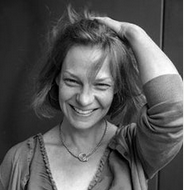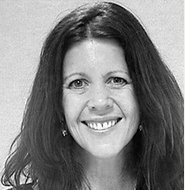Praxis is the bringing-to-life of a theory or philosophical position. It is the practical application of lessons learned through study and reflection. It is not simply what you do, it’s why you do it. Thus as the organization that specializes in ethnographic praxis in industry, we are the translators of ethnographic theory into action when applied to organizations and their cultures.
As the discipline which specializes in the nuanced and contextual understanding of culture, ethnography offers a much-needed voice in these discussions. However, organizational science has tended to be dominated by industrial/organizational psychology, business management research, sociology and economics. In the resulting literature, ethnographic methods are often lumped into the category of “qualitative organizational research,” subsuming organizational anthropology to the more established psychological, management and sociological paradigms. Yet within anthropology, organizational studies represent a well-established area of practice (particularly since the 1980s saw the emergence of ethnographic inquiry in business and industrial settings in the United States and Europe). Today, organizational anthropology is one of the most vibrant areas of interdisciplinary design and evaluation practice, with implications for human life in a wide range of areas—from technology design to government accountability.
For those of us who cut our teeth in classic anthropology, the wider embrace of our methods within the business world has often been a mixed blessing. While we welcome the greater recognition of our discipline and its contributions to human understanding (especially in complex topics like culture change), the usurpation of our ‘methods’ in the absence of our ‘theory’ or ‘thinking’ is a great disappointment. In too many cases, we’ve devolved into being the quirky cousin of the “real” social sciences that dominate organizational studies—psychology, sociology, economics, and business management. We’re fun and interesting, but few people really “get” it.
And that’s because, more often than not, we’re in the land of practice, not praxis. We’ve lost much of our theoretical core and moved right on to methods that ostensibly mimic things anthropologists do in extended fieldwork: observations, interviews, time allocation studies, investigations of material culture (plus detailed accounts of the weird, wonderful, and extreme). But we’ve mostly lost the reasons WHY anthropologists attended to these as part of their work. And we’ve sometimes lost our voice in shaping the conversation and the questions.
This is painfully true in the field of organizational studies. At core, all organizations are cultures: unique within themselves, but shaped by and able to influence the cultures that surround them. As collections of humans and things, they are the traditional fodder of anthropological inquiry. The kinds of questions ethnographers have asked of the !Kung, the Hadza, or the Trobriand Islanders, are precisely the questions we can (and should) also ask of the Volkswagens, the Amazons, or the Ferguson Police Departments of the world. If you have researched any of these areas, we would like to hear what you learned as a paper at EPIC 2016:
- What IS organizational culture, anyway?
- How does organizational culture enable and constrain the types of work we engage in?: (consumer research, innovation, design, marketing etc.)
- How do anthropologists articulate “culture,” and how does this mesh (or not) with the articulation of “culture” in the organizational science literature and in “pop” business literature?
- What are the nexus of factors that influence change in cultures?
- What are the specific roles of narrative, material goods, social networks, rituals and physical space in promoting or inhibiting change in organizations like the companies we work with or study?
- Why are we seeing resistance to change?
- What are the different dynamics between “flat” and “hierarchical” cultures, and what are the consequences for individuals within each, and for how they change?
- How can anthropologists articulate the nature of organizational culture in a way that provides practical insight to people in institutions (and the work they do)?
- How do we understand power, authority, and charisma in changing work practices?
- How do professional cultures invite new people in?
- How do they convey standards and hold people to expectations?
Allowing theory to drive our process of inquiry enables us to approach organizational challenges as human challenges, and shifts the role of ethnography from providing “interesting” methods to asking powerful questions.
The influence of social theory should not end in shaping the questions we ask. The collected body of ethnographic knowledge – more than a hundred years of writing about human behavior – can and should inform our understanding of what we find. At the end of our research, we have data. Lots and lots of data. Making sense of that requires some ideas about how the dots connect and why. In essence, it requires that we be cognizant of and articulate our assumptions about the patterns we see and motives that drive those connections. It’s not so much imposing a structure ON the data, as it is seeing how multiple theories enable different interpretations of the data itself:
- What happens if we apply Foucault versus Weber versus Lukes to our assessment of power dynamics in this organization?
- How does our understanding of what people said shift if we incorporate the lessons of Bakhtin or Labov?
- How is our persona map or org chart impacted by shifting contexts? How can Goffman’s theory of “front stage / back stage” add nuance to the models?
At EPIC this year, we want to re-engage the focus on praxis with a clear return to how theory informs our practice when it comes to the study of organization culture and change. If we are to remain a science in the truest sense of the word, our practice must be informed by and contribute to the wider body of ethnographic thinking. As one of the most vibrant and fastest-growing areas within the discipline, organizational and business anthropology has the ability to translate the best of our history (and shape the path forward). Come join us as we re-ignite the conversation around why we do what we do. Contribute your best to EPIC 2016!
 Kate Sieck, PhD, is a behavioral/social scientist at RAND Corporation. An anthropologist by training, she has been applying ethnographic theories, methods and insights to organizational and brand challenges for over a decade. Her work spans topics as diverse as American families, health care, non-profits, and CPG brand development. She has particular interest in integrating disparate data points to locate innovative opportunities for strengthening organizations and brands.
Kate Sieck, PhD, is a behavioral/social scientist at RAND Corporation. An anthropologist by training, she has been applying ethnographic theories, methods and insights to organizational and brand challenges for over a decade. Her work spans topics as diverse as American families, health care, non-profits, and CPG brand development. She has particular interest in integrating disparate data points to locate innovative opportunities for strengthening organizations and brands.
 Laura A. McNamara, PhD, is an organizational anthropologist and Principal Member of Technical Staff at Sandia National Laboratories. She has spent her career partnering with computer scientists, software engineers, physicists, human factors experts, I/O psychologists, and analysts of all sorts. She is co-editor of Anthropologists in the SecurityScape and Dangerous Liaisons: Anthropologists and the National Security State, and lead editor of the Elsevier Science Publications series Studies in Multidisciplinarity.
Laura A. McNamara, PhD, is an organizational anthropologist and Principal Member of Technical Staff at Sandia National Laboratories. She has spent her career partnering with computer scientists, software engineers, physicists, human factors experts, I/O psychologists, and analysts of all sorts. She is co-editor of Anthropologists in the SecurityScape and Dangerous Liaisons: Anthropologists and the National Security State, and lead editor of the Elsevier Science Publications series Studies in Multidisciplinarity.
Related Articles
Sensemaking in Organizations, Laura McNamara
The Not-So-Blind Watchmaker: Evolution by Design in Corporate Culture, Kate Barrett (free article—sign in required)
Trajectories of Change in Global Enterprise Transformation, Jeanette Blomberg (free article—sign in required)
Integrating Organizational and Design Perspectives to Address Challenges of Renewal, Jo Aiken (free article—sign in required)

0 Comments